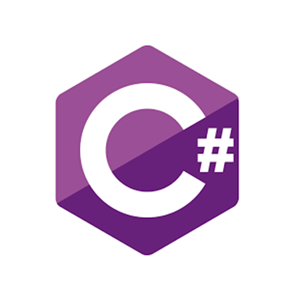Q:
C#.Net find output programs (Namespace) | set 1
belongs to collection: C#.Net find output programs
C#.Net find output programs
- C#.Net find output programs (Data Types) | set 1
- C#.Net find output programs (Data Types) | set 2
- C#.Net find output programs (Data Types) | set 3
- C#.Net find output programs (Operators) | set 1
- C#.Net find output programs (Operators) | set 2
- C#.Net find output programs (Operators) | set 3
- C#.Net find output programs (const Keyword) | set 1
- C#.Net find output programs (this Keyword) | set 1
- C#.Net find output programs (readonly Keyword) | set 1
- C#.Net find output programs (static Keyword) | set 1
- C#.Net find output programs (static Keyword) | set 2
- C#.Net find output programs (if else) | set 1
- C#.Net find output programs (if else) | set 2
- C#.Net find output programs (if else) | set 3
- C#.Net find output programs (switch statement) | set 1
- C#.Net find output programs (switch statement) | set 2
- C#.Net find output programs (switch statement) | set 3
- C#.Net find output programs (goto) | set 1
- C#.Net find output programs (Loops) | set 1
- C#.Net find output programs (Loops) | set 2
- C#.Net find output programs (Loops) | set 3
- C#.Net find output programs (Arrays) | set 1
- C#.Net find output programs (Arrays) | set 2
- C#.Net find output programs (Arrays) | set 3
- C#.Net find output programs (default Arguments) | set 1
- C#.Net find output programs (default Arguments) | set 2
- C#.Net find output programs (Parameter Passing) | set 1
- C#.Net find output programs (Enumeration) | set 1
- C#.Net find output programs (Enumeration) | set 2
- C#.Net find output programs (Boxing & Unboxing) | set 1
- C#.Net find output programs (Structure) | set 1
- C#.Net find output programs (Structure) | set 2
- C#.Net find output programs (Structure) | set 3
- C#.Net find output programs (Classes & Objects) | set 1
- C#.Net find output programs (Classes & Objects) | set 2
- C#.Net find output programs (Classes & Objects) | set 3
- C#.Net find output programs (Constructors & Destructors) | set 1
- C#.Net find output programs (Constructors & Destructors) | set 2
- C#.Net find output programs (Constructors & Destructors) | set 3
- C#.Net find output programs (Inheritance) | set 1
- C#.Net find output programs (Inheritance) | set 2
- C#.Net find output programs (Inheritance) | set 3
- C#.Net find output programs (Interface) | set 1
- C#.Net find output programs (Interface) | set 2
- C#.Net find output programs (Method Overloading) | set 1
- C#.Net find output programs (Method Overloading) | set 2
- C#.Net find output programs (Method Overriding) | set 1
- C#.Net find output programs (Method Overriding) | set 2
- C#.Net find output programs (Method Overriding) | set 3
- C#.Net find output programs (Operator Overloading) | set 1
- C#.Net find output programs (Operator Overloading) | set 2
- C#.Net find output programs (Operator Overloading) | set 3
- C#.Net find output programs (Namespace) | set 1
- C#.Net find output programs (Namespace) | set 2
- C#.Net find output programs (Exception Handling) | set 1
- C#.Net find output programs (Exception Handling) | set 2
- C#.Net find output programs (Exception Handling) | set 3




 c# programming
c# programming
Answer 1:
Output:
Explanation:
In the above program, we created a namespace MyNameSpace that contains a class A, and class A contains two public integer variables Num1 and Num2.
Now look to the Program class that contains the Main() method. Here, we created a local variable C and initialized Num1 and Num2 with 10 and 20 respectively. Then add values of Num1 and Num2 and assigned to variable C and then print the value of C on the screen.
Answer 2:
Output:
Explanation:
The above program will generate syntax errors because, in the above program, we used "::" operator to access members of the namespace, which is not correct, we need to use dot '.' operator to access members of the namespace in C#.
Answer 3:
Output:
Explanation:
In the above program, we created a namespace MyNameSpace that contains a class A, and a namespace nested. class A contains a public integer variable Num in both namespaces MyNameSpace and Nested.
Now look to the Program class that contains the Main() method. Here, we created a local variable C.
MyNameSpace.A.Num = 10; MyNameSpace.Nested.A.Num = 20;Here, we initialized values of class members that contained in the namespaces,
C = MyNameSpace.A.Num + MyNameSpace.Nested.A.Num;Add values of data members and assigned to local variable C, and printed the value of C on the console screen.
Answer 4:
Output:
main.cs(11,11): error CS1525: Unexpected symbol `void', expecting `class', `delegate', `enum', `interface', `partial', or `struct' main.cs(13,8): error CS1525: Unexpected symbol `Console', expecting `class', `delegate', `enum', `interface', `partial', or `struct' main.cs(13,25): error CS1525: Unexpected symbol `(', expecting `class', `delegate', `enum', `interface', `partial', or `struct' main.cs(14,5): error CS1514: Unexpected symbol `}', expecting `.' or `{'Explanation:
The above program will generate a compile-time error because we cannot contain a method in the namespace directly, here namespace MyNameSpace contains Fun() method, which is not correct.
Answer 5:
Output:
Explanation:
The above program will generate syntax errors because the structure STR contains private member Num that cannot be accessed outside the structure directly.
need an explanation for this answer? contact us directly to get an explanation for this answer